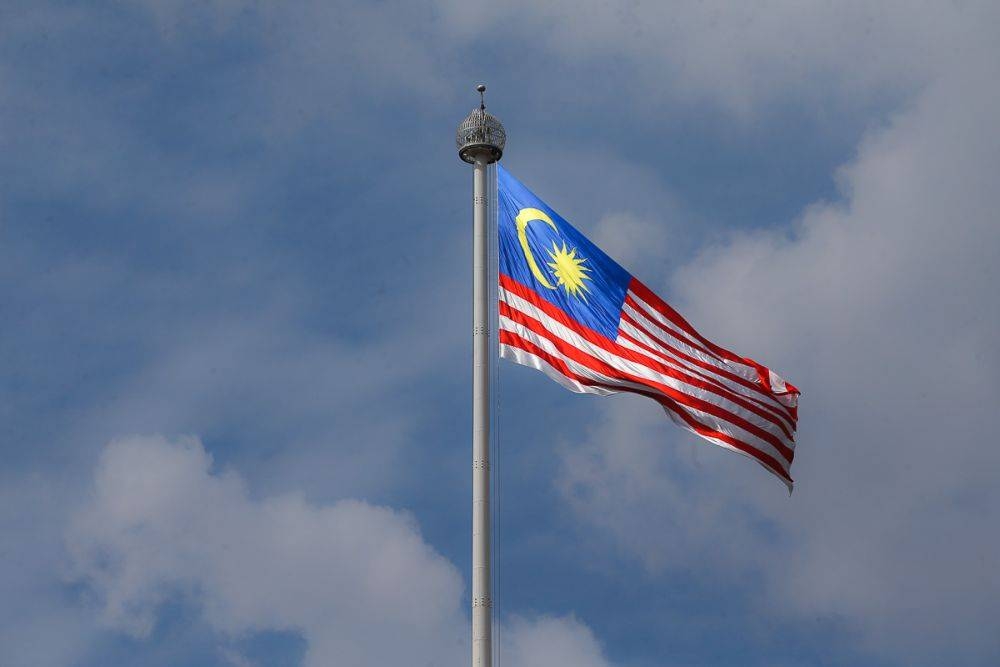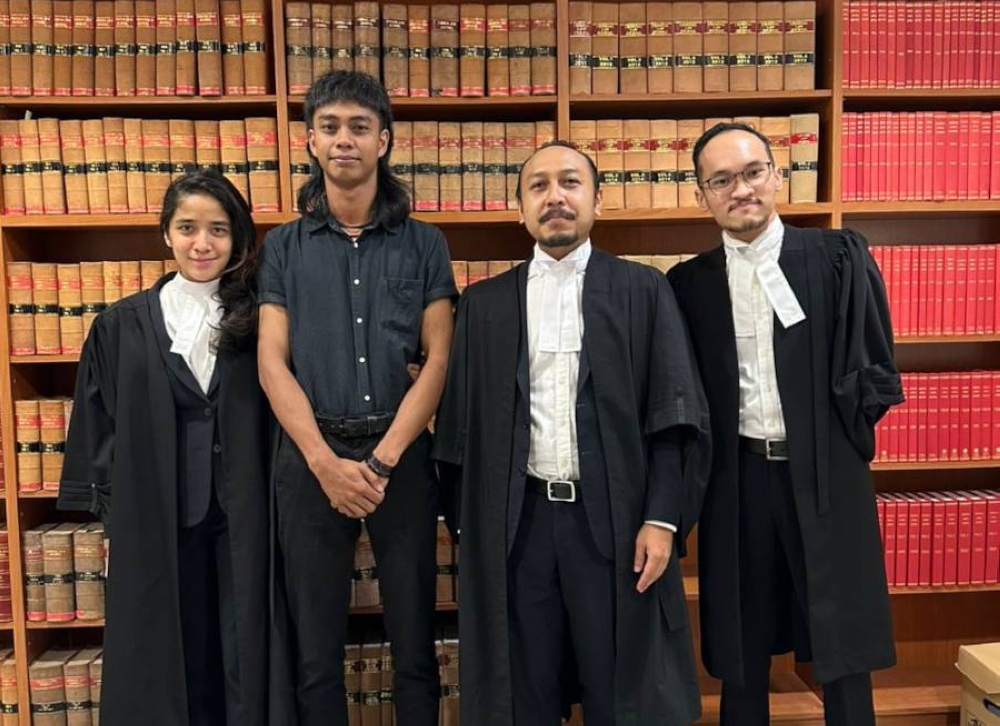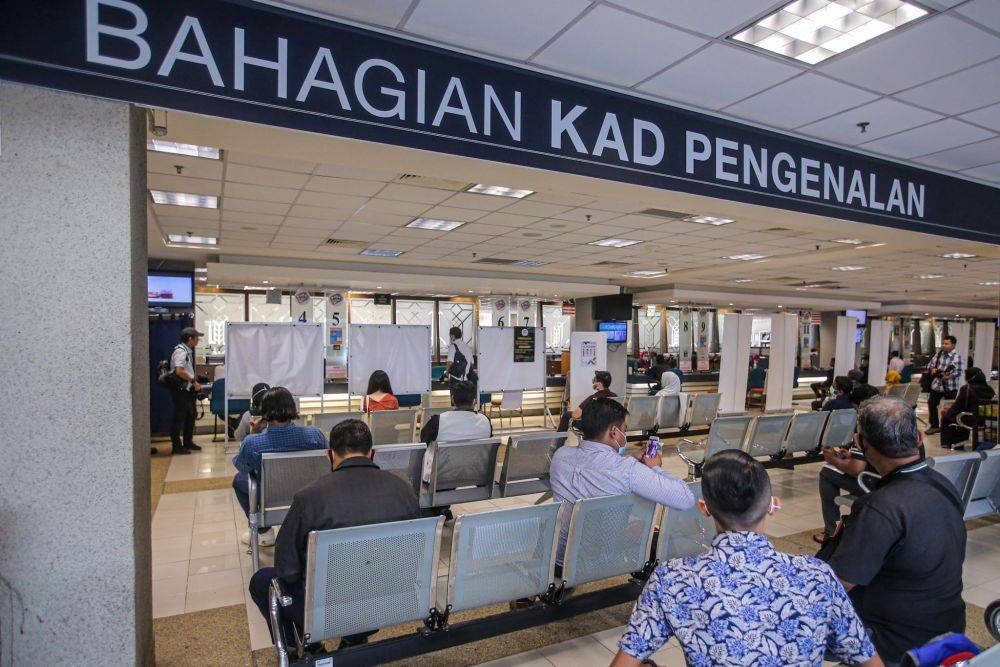PUTRAJAYA, Oct 26 — A 15-year-old girl born in Perak — to a Malaysian father and a Filipino mother — today chalked up a win again in the Federal Court in her six-year journey through the courts to seek recognition as a Malaysian citizen.
She had previously won twice at the High Court and the Court of Appeal which declared her to be a Malaysian.
But the girl — who will be turning 16 soon — was put in limbo again over her status, as the government had applied to the Federal Court for leave or for permission to appeal the decision in her favour.
But with the Federal Court’s decision today, which is mere days before her 16th birthday, the girl will finally get to call herself a Malaysian officially.
Today, Chief Judge of Sabah and Sarawak Tan Sri Abang Iskandar Abang Hashim, who chaired a three-judge panel at the Federal Court, rejected the government’s application for leave to appeal.
“We are unanimous in our view that this application lacks merits, and therefore, we dismiss this application with no order as to costs,” the judge said when delivering the decision via the video-conferencing platform Zoom.
The other two Federal Court judges on the panel today were Datuk Rhodzariah Bujang and Datuk Mohamad Zabidin Mohd Diah.
When contacted, one of the girl’s lawyers, Larissa Ann Louis told Malay Mail: “I am extremely delighted with today’s decision. We fought for this young girl for six long years! Though we won at every stage, we still found ourselves fighting to defend her status.
“She turns 16 next week and I can only imagine this being the sweetest 16! Hopefully, we get to help more struggling individuals be recognised as Malaysians. One life changed, many more to come.”
When contacted, the girl’s lawyer Annou Xavier told Malay Mail: “This young girl has been waiting since 2008 when she first made her application for citizenship to the National Registration Department and has been waiting since May 2, 2019 since she won at the High Court.
“With today’s Federal Court decision, we hope that the Government will issue the citizenship certificate and identity card soon, without delay.”
The girl has been waiting her entire life for Malaysia to recognise her as a citizen, with her Malaysian father making the first application for her citizenship in February 2008 when she was just more than one year old.
The girl’s second citizenship application in October 2011 was rejected through a December 2012 letter, while her third attempt in September 2013 was rejected through an August 2016 letter. Both rejection letters did not give any reasons for the rejections. The Department of Chemistry Malaysia in a July 2014 report confirmed that DNA test results showed the Malaysian father to be the girl’s biological father.
The girl and her father had filed the lawsuit on October 28, 2016 at the High Court, which was the start of their legal battles in court for her to be recognised as a Malaysian.
Although the High Court had on May 2, 2019 ordered for the girl to be issued with a Malaysian citizenship certificate and the MyKad identification card, the girl did not receive these documents as the government and the two other respondents filed an appeal on May 27, 2019 to the Court of Appeal.
After the Court of Appeal on February 15 this year unanimously upheld the High Court’s decision, the government in March filed its application for leave to appeal at the Federal Court. The Federal Court’s decision today means the High Court order still stands, and the government will have to comply with the order to issue those citizenship documents to the girl.
The girl, who was contacted via her lawyers, told Malay Mail: “I am very grateful and happy.”
Also, via the lawyers, the girl’s mother told Malay Mail of the family’s great joy: “No words can express the tears and joy especially when Larissa called to inform us of today’s decision. Thank you all for helping us and making things possible. The long wait finally paid off. My daughter is known and I hope our journey will help many other individuals.”
The hearing and decision of the girl’s citizenship case today was closely watched by civil society, with lawyer Tay Kit Hoo holding a watching brief for the Human Rights Commission of Malaysia (Suhakam) and lawyer Ranee Sreedharan holding a watching brief for the Development of Human Resources for Rural Areas (DHRRA). Lawyer Jasmine Wong held a watching brief for clients who have pending court cases in their bid to be recognised as Malaysian citizens.
Senior federal counsels Liew Horng Bin and Nur Idayu Amir today represented the Home Ministry secretary-general, the National Registration Department (NRD) director-general and the Malaysian government in the hearing of the leave application.
Earlier today, Liew had argued that the Malaysian government should be granted leave to pursue its appeal against the Court of Appeal’s previous unanimous decision to recognise the girl as a Malaysian. He pointed out that the Federal Court had previously took different positions regarding how citizenship laws should apply in Malaysia and the laws in relation to illegitimate children or children born out of wedlock.
Liew argued that the Malaysian government was “entitled” to hear loud and clear and in a unison voice from the Federal Court on what is the status of the law regarding certain citizenship provisions in the Federal Constitution, in order to enable the government and the registering authority to respond or to comply with the law.
Annou had argued that the three legal questions which the government wanted to pursue as an appeal before the Federal Court had “no prospects of success” and “have no footing”, and argued that the government’s application for leave to appeal should be dismissed.
Annou argued that the girl had satisfied the Malaysian citizenship requirements under Section 1(e) of Part II of the Second Schedule of the Federal Constitution, which requires those born in Malaysia to be “not born a citizen of any country”.
He pointed out that is because the girl is without any citizenship, saying: “There’s no evidence of citizenship in any country, the child is stateless as of today.”
Annou argued that there was no ambiguity in the laws which would require the Federal Court to grant leave, and said that the issues of law relating to his client’s case had already been settled in other court cases including at the Federal Court.
Annou also noted that the girl’s status became legitimised upon the marriage of her biological parents after her birth and said they had even obtained a legitimacy order from the courts to confirm this, and argued that the issue of legitimacy would then no longer arise when it comes to determining the child’s citizenship status.
After hearing both sides, the Federal Court today decided to dismiss the government’s application for leave to appeal.





















